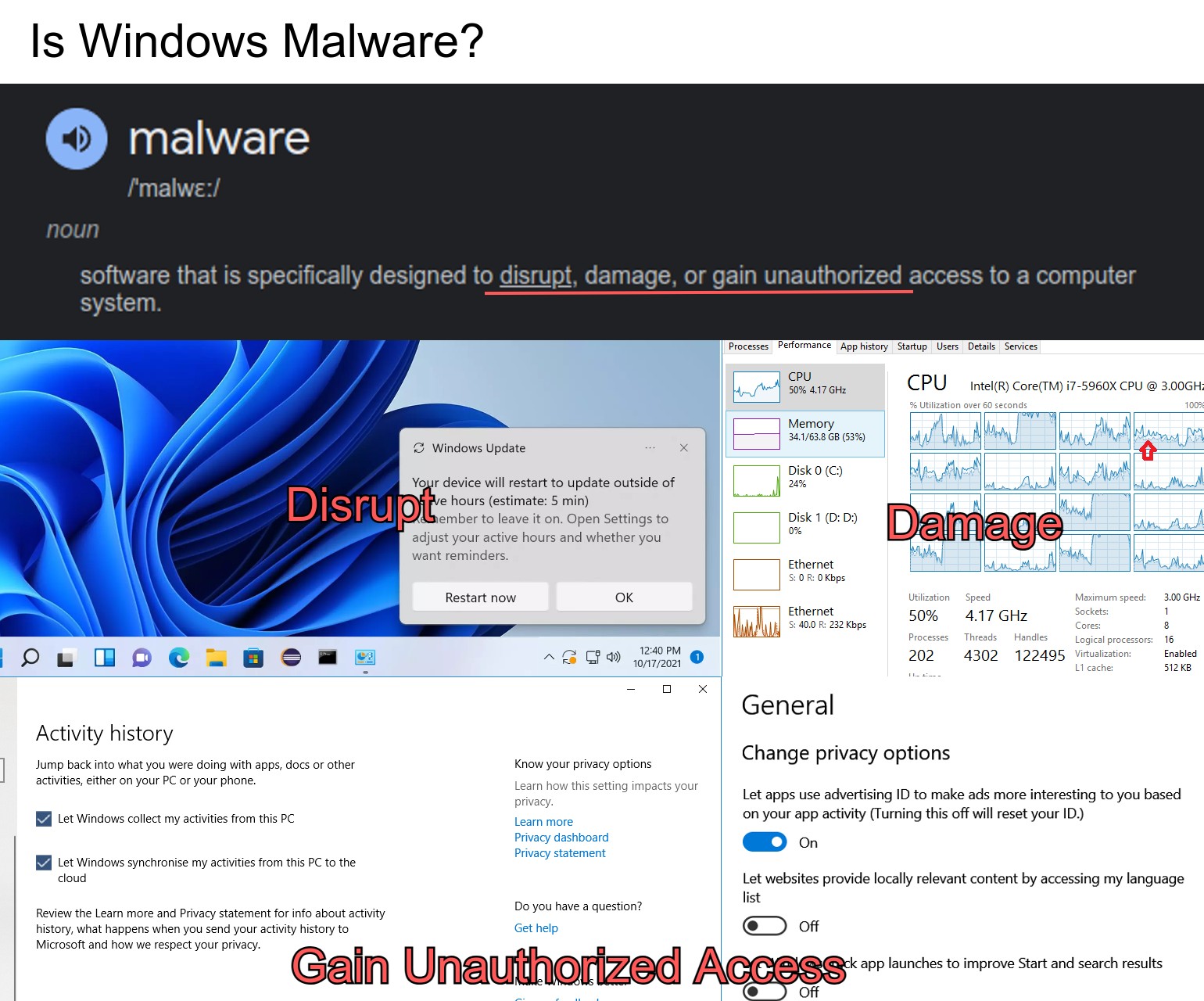this post was submitted on 21 May 2024
769 points (95.2% liked)
linuxmemes
21611 readers
1261 users here now
Hint: :q!
Sister communities:
Community rules (click to expand)
1. Follow the site-wide rules
- Instance-wide TOS: https://legal.lemmy.world/tos/
- Lemmy code of conduct: https://join-lemmy.org/docs/code_of_conduct.html
2. Be civil
- Understand the difference between a joke and an insult.
- Do not harrass or attack members of the community for any reason.
- Leave remarks of "peasantry" to the PCMR community. If you dislike an OS/service/application, attack the thing you dislike, not the individuals who use it. Some people may not have a choice.
- Bigotry will not be tolerated.
- These rules are somewhat loosened when the subject is a public figure. Still, do not attack their person or incite harrassment.
3. Post Linux-related content
- Including Unix and BSD.
- Non-Linux content is acceptable as long as it makes a reference to Linux. For example, the poorly made mockery of
sudoin Windows. - No porn. Even if you watch it on a Linux machine.
4. No recent reposts
- Everybody uses Arch btw, can't quit Vim, and wants to interject for a moment. You can stop now.
Please report posts and comments that break these rules!
Important: never execute code or follow advice that you don't understand or can't verify, especially here. The word of the day is credibility. This is a meme community -- even the most helpful comments might just be shitposts that can damage your system. Be aware, be smart, don't fork-bomb your computer.
founded 2 years ago
MODERATORS
you are viewing a single comment's thread
view the rest of the comments
view the rest of the comments

I think Linux seems to have more updates because the package update manager is taking care of every installed program as well as the OS.
That's certainly true, and there may even be advantages to this because security issues might get fixed more quickly, but it doesn't change the fact that the annoyance factor is at least as high as that of Windows used to be, and there is no convenient option to have it taken care of automatically, say, at shutdown.
Instead of making fun of Windows, it would serve Linux far better to actually address this issue, even if that means copying what Microsoft did here.
I don’t know how much this varies by distro, but I find the updates completely non intrusive. I think in Fedora I’ve seen one or two “critical updates are available” or “version N+1 is available” popups, but they aren’t intrusive and don’t get in the way. I’m not sure if I’ve seen a popup in Mint or not. Most of the time I notice there’s an update available because there’s a notification in the system tray or equivalent.
And I’m not even here to bash how Windows does it. I haven’t had many issues with my windows machines because I’ll check for updates and/or install available ones right away. Either that or I don’t use the machine for a while (working as a server) and it may or may not restart itself at night sometimes.
I still prefer the Linux way, which is kind of a win-win in my eyes because you get control over updates and reboots AND your system isn’t as much of a target in the first place so updates aren’t usually time critical.
I mean, popups are by definition intrusive, no?
Windows 11 just shows a little icon in the notification tray and won't really bother you otherwise until you click on it. I think by default it will try to install the pending updates on shutdown, but when you click on the icon you can choose to either postpone it or do it immediately.
Meanwhile, Ubuntu always interrupts you with a popup which yes, you can click "Not now" on if you want to deal with it later, but then it'll just pop up again some other time. And the only other option is to just let it do its thing (but at least it can run unobtrusively in the background and only requires a restart if there's a kernel update).